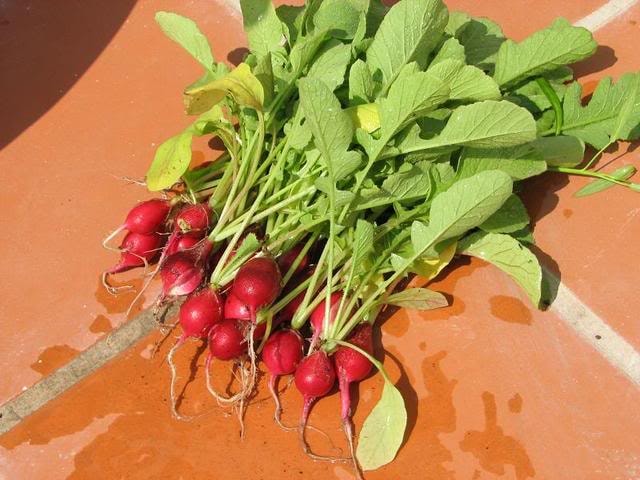Antioxidant tubers
Antioxidants are found in abundance in fruits, vegetables, and herbs. Many studies have demonstrated their health benefits in many ways.
In a healthy body, free radicals are produced in limited quantities, not too much to cause harm. Because besides free radicals, there is always a system of "endogenous" antioxidants that balance and neutralize harmful free radicals.
However, when the body is weak, this balance is broken. At that time, the body needs antioxidants from the outside. These are beta-carotene, the mineral selenium, flavonoid compounds, polyphenols... These substances are found in vegetables.
Garlic: Probably one of nature's oldest and most popular antioxidants. This herb is used as an important culinary spice. It has been known as a natural antibiotic for centuries.
Garlic keeps our hearts healthier by lowering cholesterol and blood pressure. It boosts the immune system, helps with blood circulation, and plays an important role in cancer prevention.
Garlic also helps to maintain the youthful elasticity of the skin and slows down the aging process of the user's skin. These are the best natural antioxidants that nature can provide to the body.
Beetroot: Betanin and vulgaxanthin in beetroot have antioxidant, anti-inflammatory and detoxifying properties. Beetroot is also good for vision and nerve tissue.
 |
| Radish |
Scientists have proven that antioxidants can prevent tumor growth and monitor abnormal cell growth. It is especially effective in preventing breast, prostate, lung, colon and kidney cancer.
Sweet potatoes: Rich in beta-carotene, selenium, anthocyanin, vitamin A, vitamin C and vitamin E. Therefore, if you want your body to have many antioxidants to improve health, prevent disease and anti-aging, you should not ignore this food.
Vitamin C, vitamin B6, beta-carotene and manganese in sweet potatoes help sweet potatoes have very high anti-inflammatory properties, reduce dark spots, and prevent chronic non-communicable diseases. Eating sweet potatoes 1-2 times/week will help provide many beneficial vitamins, minerals, fiber... Sweet potatoes not only tighten the skin but also reduce wrinkles on the face, prevent skin diseases such as dermatitis...
Carrots: A rich source of beta-carotene, selenium, lutein, vitamin A, vitamin C and vitamin E. Carrots come in many colors: red, yellow, purple, orange... and even white. Red carrots contain lucopene, a form of carotenoid that helps prevent heart disease and cancer. Yellow carrots are rich in xanthofin, which is good for the eyes.
Purple carrots contain a completely different pigment called anthocyanin, which acts as a powerful antioxidant. Lutein, abundant in orange carrots, is one of the pigments that completes the color of the macula in the human retina.
However, you should not eat too many carrots because the amount of carotene in carrots cannot be converted into vitamin A, causing stagnation in the liver, causing jaundice, indigestion, fatigue...
Beetroot: Recent studies have shown many health benefits of beetroot, and it is recommended to use this root in daily meals. Research by scientists at Wake Forest University (USA) shows that beetroot contains an antioxidant called alpha-lipoic acid, which lowers blood sugar levels, increases insulin sensitivity, prevents oxidative imbalance in diabetic patients, helps increase brain oxidation, and slows down memory loss in the elderly.
In addition, choline in beets also helps improve sleep, is good for memory and especially increases muscle movement, so it can help enhance sports performance while helping maintain cell membrane structure, supporting nerve impulse transmission, participating in fat absorption and reducing chronic inflammation.
In addition to the above list, spinach and cereals are also great sources of antioxidants that make daily meals more varied and full of vitamins, helping us develop a truly healthy lifestyle and eating style.
According to health and life
